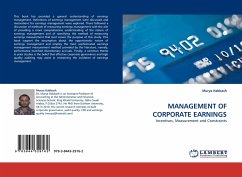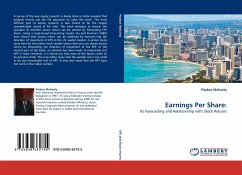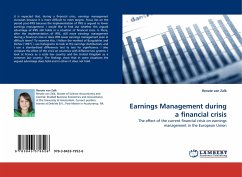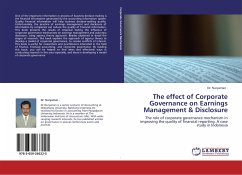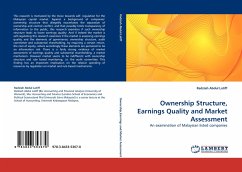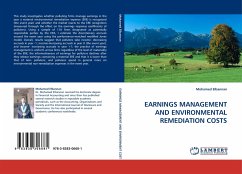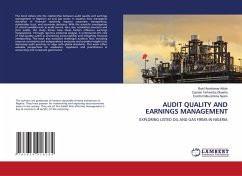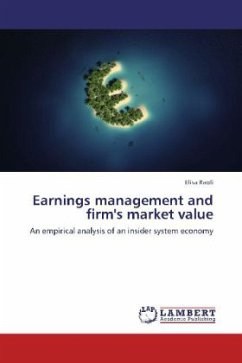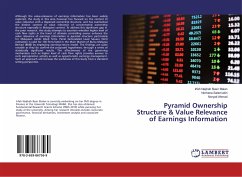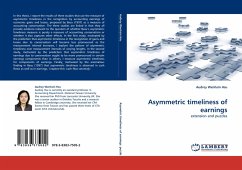
Asymmetric timeliness of earnings
extension and puzzles
Versandkostenfrei!
Versandfertig in 6-10 Tagen
52,99 €
inkl. MwSt.

PAYBACK Punkte
26 °P sammeln!
In this thesis, I report the results of three studies that use the measure of asymmetric timeliness in the recognition by accounting earnings of economic gains and losses, proposed by Basu (1997) as a measure of accounting conservatism. The three studies are linked in that they all provide evidence relevant to the question of whether Basu's asymmetric timeliness measure is purely a measure of accounting conservatism or whether it also captures other effects. In the first study, motivated by the prediction that asymmetric timeliness in the recognition of gains and losses due to conservatism wil...
In this thesis, I report the results of three studies that use the measure of asymmetric timeliness in the recognition by accounting earnings of economic gains and losses, proposed by Basu (1997) as a measure of accounting conservatism. The three studies are linked in that they all provide evidence relevant to the question of whether Basu's asymmetric timeliness measure is purely a measure of accounting conservatism or whether it also captures other effects. In the first study, motivated by the prediction that asymmetric timeliness in the recognition of gains and losses due to conservatism will become less pronounced as the measurement interval increases, I explore the pattern of asymmetric timeliness over measurement intervals of varying lengths. In the second study, motivated by the prediction that asymmetric timeliness of earnings due to conservatism ought to be more pronounced in certain earnings components than in others, I measure asymmetric timeliness for components of earnings. Finally, motivated by the anomalous finding in Basu (1997) that asymmetric timeliness is observed in cash flows as well as in earnings, I explore this cash-flow anomaly'.



